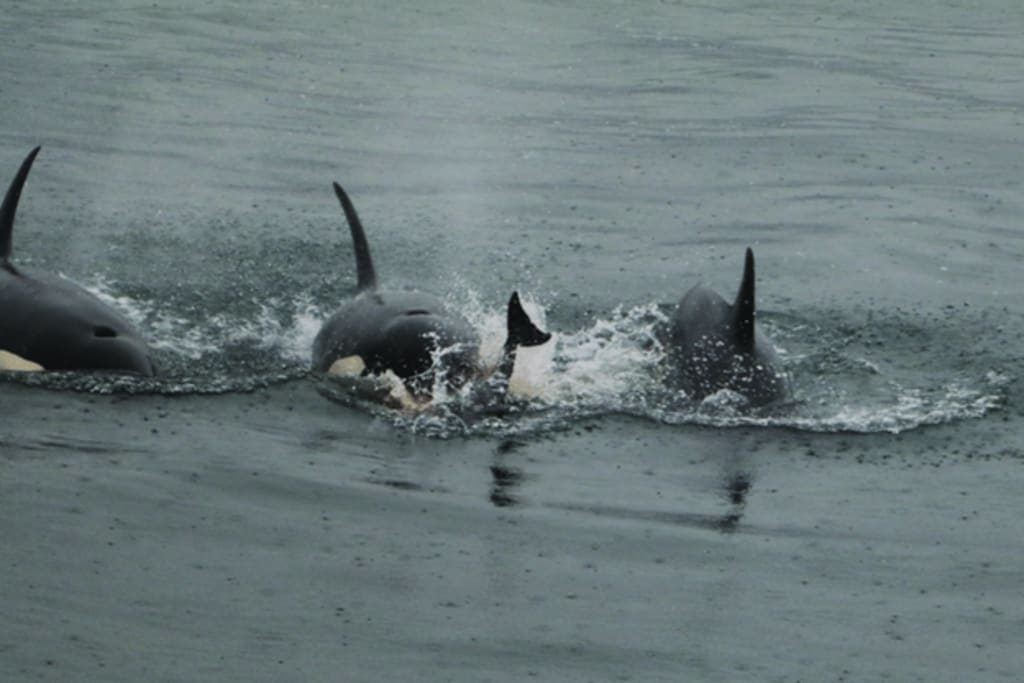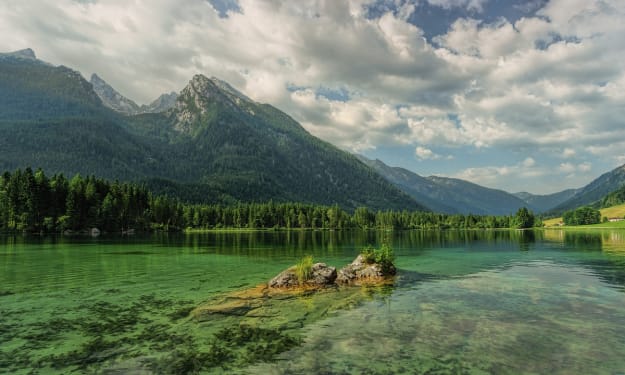The Enigmatic Phenomenon of Killer Whales' Porpoise Predation
Killer Whales Mystery on Porpoise Killing

For decades, a baffling mystery had surrounded the behavior of killer whales in the Pacific Northwest. These fish-eating killer whales, commonly known as orcas, were harassing and even killing porpoises without any intention of consuming them. This enigmatic behavior had puzzled scientists, leaving them with several intriguing theories.
Recently, a breakthrough came in the form of a study published in the journal Marine Mammal Science, led by researchers from the University of California in Davis. These experts delved into more than six decades of records, shedding light on the possible motives behind the killer whales' actions.
The Southern Resident killer whales, a specific population of orcas in the Pacific Northwest, had long been of interest to scientists due to their unique behavior. With only 75 individuals remaining, they were considered endangered, and their fate was intricately linked to another threatened species, the Chinook salmon.
Endangered Southern Resident killer whales (Orcinus orca), renowned for their preference for adult Chinook salmon (Oncorhynchus tshawytscha), have puzzled scientists with their intriguing behavior of harassing and killing porpoises (family Phocoenidae) without consuming them.
Among the targeted porpoise species, 56 episodes involved harbor porpoises (Phocoena phocoena), 13 involved Dall's porpoises (Phocoenoides dalli), while the porpoise species was unspecified in nine instances. Intriguingly, these killer whales often selected young porpoises that were similar in size to their favored adult Chinook salmon. This behavior transcended age and gender, with both male and female killer whales participating in porpoise harassment. Juveniles were the most active in this behavior, although their engagement rates did not significantly differ from other age groups.
However, the killer whales in question didn't consume the porpoises they killed. Their ecological and cultural differences from other orca groups that prey on marine mammals made this behavior even more perplexing. "So we must conclude that their interactions with porpoises serve a different purpose, but this purpose has only been speculation until now," explained study co-author Deborah Giles.
Meanwhile, on the Iberian Peninsula, killer whales made headlines by sinking boats off the coasts of Portugal and Spain on multiple occasions. While these two killer whale populations had distinct cultures, researchers began to speculate that their shared affinity for "play behavior" might offer some clues.
In a comprehensive retrospective analysis spanning from 1962 to 2020, researchers identified and scrutinized 78 documented instances of Southern Resident killer whales engaging in porpoise harassment with 28 of these encounters resulting in the death of the porpoise, a phenomenon termed "phocoenacide." The analysis proposed three intriguing hypotheses:
Social Play: The Southern Resident killer whales might be harassing porpoises as a form of social play. This behavior could serve to strengthen bonds, facilitate communication, or simply provide entertainment among the group. Such play behavior could enhance group coordination and teamwork.
Hunting Practice: Another theory suggested that the orcas might be using porpoises as practice targets to hone their hunting skills, particularly for salmon. Even if they didn't intend to consume the porpoises, these marine mammals could serve as moving targets to refine their hunting techniques.
Mis-Manifestation of Mothering Behavior: The third theory proposed that the killer whales might be attempting to provide care for porpoises they perceived as weaker or ill. This behavior might be a manifestation of their natural inclination to assist others in their group, akin to mothering behavior. The limited opportunities to care for young due to malnutrition could contribute to this phenomenon.
Despite these compelling theories, scientists acknowledged that the exact reason behind the killer whales' behavior might remain elusive. The study underscored the complexity of animal behavior and the challenges in deciphering their actions in the wild. Further research and observation were deemed necessary to gain a deeper understanding of this enduring mystery.
About the Creator
John C. Lustre
I’m John C. Lustre, a passionate advocate for charitable work based in the Philippines. I have a deep love for helping indigenous peoples and a burning curiosity about how I can uplift their standard of living.
Thanks for stopping by!






Comments
There are no comments for this story
Be the first to respond and start the conversation.